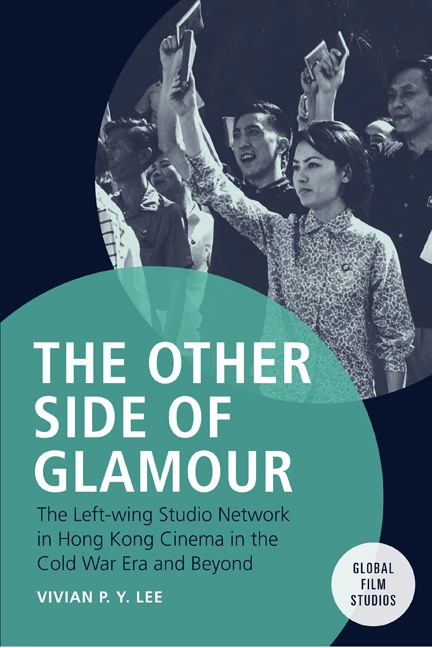 The Other Side of Glamour
The Other Side of Glamour Book contents
- Frontmatter
- Cotents
- List of Figures
- Acknowledgments
- A Note on the Timeline
- Timeline
- Dedication
- 1 Introduction
- 1 The Left-Wing Film Apparatus in Postwar Hong Kong
- 2 Left in the Right Way: Corporate Strategy and the Making of a Popular left-wing
- 3 Remaking Cantonese Film Culture: Union and Sun Luen
- 4 Class, Gender, and Modern Womanhood: Feng Huang and Great Wall
- 5 Corporate Repositioning, Transnational Cultural Brokerage, and Soft Power: Sil-Metropole
- 6 Critical Transitions on the Non-Left: Patrick Lung and Cecile Tang
- 7 From Political Alibis to Creative Incubators: the Left-Wing Film network since the 1980s
- Epilogue
- Bibliography
- Filmography
- Index
4 - Class, Gender, and Modern Womanhood: Feng Huang and Great Wall
Published online by Cambridge University Press: 17 September 2020
- Frontmatter
- Cotents
- List of Figures
- Acknowledgments
- A Note on the Timeline
- Timeline
- Dedication
- 1 Introduction
- 1 The Left-Wing Film Apparatus in Postwar Hong Kong
- 2 Left in the Right Way: Corporate Strategy and the Making of a Popular left-wing
- 3 Remaking Cantonese Film Culture: Union and Sun Luen
- 4 Class, Gender, and Modern Womanhood: Feng Huang and Great Wall
- 5 Corporate Repositioning, Transnational Cultural Brokerage, and Soft Power: Sil-Metropole
- 6 Critical Transitions on the Non-Left: Patrick Lung and Cecile Tang
- 7 From Political Alibis to Creative Incubators: the Left-Wing Film network since the 1980s
- Epilogue
- Bibliography
- Filmography
- Index
Summary
The complex political landscape of Hong Kong during the Cold War era gave rise to distinctive forms of cultural politics. Against the versatile conditions of film production in the 1950s and 1960s, film studios, left or right, had to carefully steer their courses in the domestic and overseas markets where anti-Communist policies were stringently enforced (for instance in Taiwan and Singapore), while the left-wing studios still enjoyed limited circulation in parts of Mainland China. Feng Huang and Great Wall were major contenders from the left -wing cultural front for the Mandarin-language film market during the 1950s and 1960s. Competing against MP&GI and the Shaw Brothers, the two industry giants with close ties to the US and Taiwan and extensive industry networks in Southeast Asia, the left-wing studios were operating at a natural disadvantage in Hong Kong. In the heat of the left-wing initiated Cantonese Film Clean-up Campaign, the Mandarin studios were facing an existential challenge of a diff erentsort: to contest against their formidable right-wing rivals who had distribution and exhibition chains in Hong Kong and Southeast Asia and an exclusive access to the Taiwan market.
This chapter revisits the left –right divide in Mandarin films through the lens of gender and class politics. It is concerned with the way in which a certain notion of modern womanhood is embedded in the cinematic imagination of modernity of both the progressive and “freedom” camps. No doubt, gender and class have enriched the critical discourse on modernity and its more ambivalent manifestations in the non-Western world. When it comes to the Cold War and its cultural implications in relation to the left–right ideological divide in Hong Kong cinema, the triangulated relation between gender, class, and the imagination of modernity under the whirlwind of intensifying interstate conflicts remains an under-researched area, despite the fact that the Mandarin cinema of this period had produced some of the most memorable and captivating female actresses and screen personae in the history of Chinese cinema.
- Type
- Chapter
- Information
- The Other Side of GlamourThe Left-wing Studio Network in Hong Kong Cinema in the Cold War Era and Beyond, pp. 77 - 95Publisher: Edinburgh University PressPrint publication year: 2020
